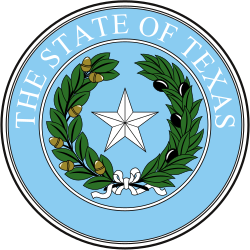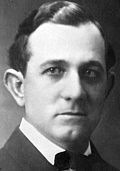| |||||||||||||||||
| |||||||||||||||||
 County results [1] Connally: 50–60% 60–70% 70–80% 80–90% >90% Contents
| |||||||||||||||||
| |||||||||||||||||
| Elections in Texas |
|---|
 |
The 1928 United States Senate election in Texas was held on November 6, 1928. Incumbent Democratic U.S. Senator Earle Mayfield ran for re-election to a second term.
Mayfield drew several primary challengers, including former governor Oscar Branch Colquitt and U.S. Representatives Tom Connally and Thomas L. Blanton. [2] [3] The candidates ran on issues such as public utilities, transportation infrastructure, immigration, and agriculture, as well as several of the candidates' records in the House and Senate. [4] [5] The number of high-profile candidates in the race made a runoff almost certain. Mayfield campaigned very little prior to the runoff, which he was confident he would make, as to not alienate the supporters of the candidates who might be eliminated in the first round. [6] Mayfield won a plurality of the vote in the first round, but he failed to win a majority, forcing him into a runoff with the second place finisher, Tom Connally. [7]
Mayfield, who in his previous race had been supported by the Ku Klux Klan, was very ideologically similar to Connally. Despite having been defeated by him in the Democratic primary six years prior, former Governor Pa Ferguson endorsed Mayfield against Connally, considering him to be the lesser of two evils. [8] Despite this endorsement, Connally defeated Mayfield in the primary. [9] The Texas Republican Party nominated attorney Thomas M. Kennerly to run against him. [10] Connally easily defeated Kennerly in the general election, despite Republican Herbert Hoover carrying the state in the concurrent presidential election. [11] [12] [13]

